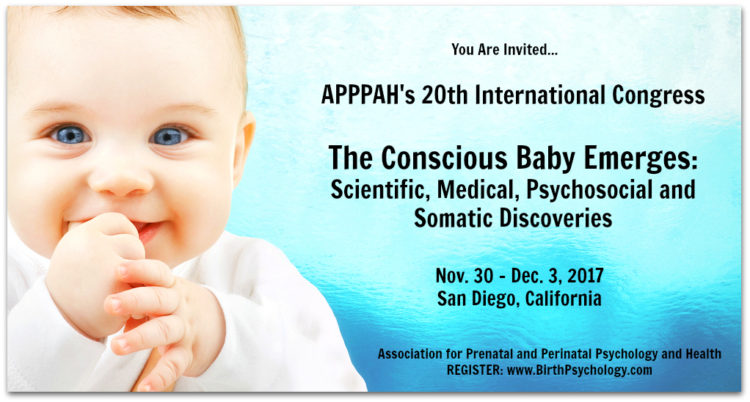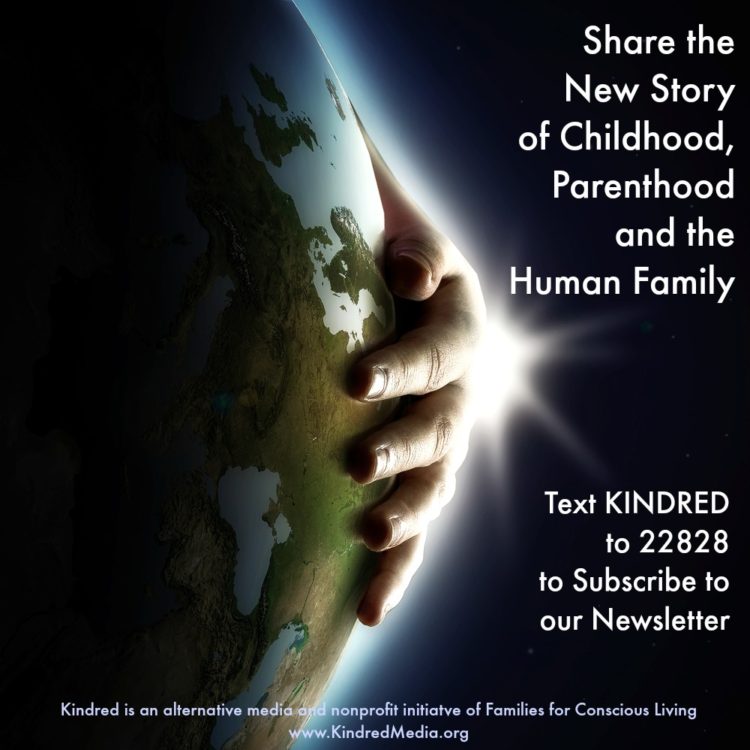Is “Identification With The Oppressor” Taking Over The Meaning Of MIDWIFERY?
“The question is, is it time to leave organizations like MANA and create our own women-centered support systems that embrace and uphold traditional Midwifery practices and woman-centered care? Or can we be inclusive, while still remaining women-centered and sovereign?”
Healing from oppression is a process of exposure and integration. And in the beginning of the healing process there is a psychological phenomenon known as identification with the oppressor. Recent events make me wonder if this might explain some of what is happening in MIDWIFERY: if the example set by the oppressor, who in the case of maternal child health care is the medical industrial complex, may have become the aspiration of those it has oppressed. The oppressive, patriarchal monopoly of the medical, insurance, and pharmaceutical companies, clearly holds the power and wealth over birth, while the oppressed individuals — women and midwives deprived of rightful dominion over their biology — may tend to aspire to become more like the oppressor himself.
Overlaying the known model of recovery onto the traumatic life event birth has become, it is easy to imagine how oppressed women and midwives could aspire to become more like the patriarchal authority figures, organizations and institutes currently dominating and controlling birth.
As a result of this psychological process, the oppressed individual more and more subconsciously attempts to identify herself with the traits of the oppressor. In this move, the oppressed individual becomes unable to clearly be objective about her oppressor because she has embraced in herself those very same traits. In Pedagogy of the Oppressed (1970), Paulo Freire, points out the oppressors–oppressed distinction and differentiates between the positions in an unjust society. He goes on to suggest that, “almost always, during the initial stage of the struggle, the oppressed, instead of striving for liberation, tend themselves to become oppressors, or sub-oppressors.” He writes:
“The very structure of their thought has been conditioned by the contradictions of the concrete, existential situation by which they were shaped. Their ideal is to be men; but for them, to be men is to be oppressors. This is their model of humanity. This phenomenon derives from the fact that the oppressed, at a certain moment of their existential experience, adopt an attitude of “adhesion” to the oppressor. Under these circumstances she cannot “consider” herself clearly enough to objectivize him—to discover him “outside” of herself. This does not necessarily mean that the oppressed are unaware that they are downtrodden. But their perception of themselves as oppressed is impaired by their submersion in the reality of oppression.” At this level, their perception of themselves is shaped by the desire for power and authority over their situation. Thus they adopt the attitudes and behaviors of their oppressor.”
From November 2-5, 2017, I did not need to imagine how women and midwives may be recovering from the traumatic patriarchal takeover of birth over the past century. At the Midwives Alliance of North America, MANA, Conference, I feel I witnessed this recovery in action.
The conference celebrated MANA’s 35th anniversary and held in conjunction with the California Association of Midwives in Long Beach, California. Oddly, the title of the conference was simply “COLLABORATE” while the experience proved to be anything but collaborative.
 Deep Breath… It has taken me 48 hours to fully assimilate into my body what happened to me at this gathering of midwives. Even before I arrived I was asked to identify my gender pronoun preference, and that is fine, but it signaled a rarified madness to come. Going into the conference, I knew that MANA had been working to address the lack of midwifery care for black communities. It is a fact that three of every four women who die in childbirth are black. We have also been keenly aware of the disproportionate number of black infants who die at birth.
Deep Breath… It has taken me 48 hours to fully assimilate into my body what happened to me at this gathering of midwives. Even before I arrived I was asked to identify my gender pronoun preference, and that is fine, but it signaled a rarified madness to come. Going into the conference, I knew that MANA had been working to address the lack of midwifery care for black communities. It is a fact that three of every four women who die in childbirth are black. We have also been keenly aware of the disproportionate number of black infants who die at birth.
It is a fact that in the places with the highest mortality rates there are little to no community midwives. Midwifery organizations worldwide have been working to address these issues. I also knew that we, as a community, have been focused for yeas on cultural competency and sensitivity to people unlike ourselves. I had no idea how far the leadership would allow these issues to dominate the entire conference right down to the definition of the word Midwife!
When I first arrived I saw several very nice looking self-labeled “folks” walking around in tailored suits, with fresh white shirts, neck ties and meticulously groomed short haircuts. These folks were caring brief cases… and look a lot like male lawyers or authority figures. THEY WERE VERY VISIBLE. I knew in the back of my mind that I had seen them before at the Human Rights in Childbirth Conference and at other places over the last few years. I was aware that they were stepping into “leadership.” It didn’t hit me until after my shower on the second day… I had just sat in a room with over 100 women all listening to two of these folks talk about “science” and “the law” for over an hour and a half, and that I was triggered!!!
I was unaware of the changes in MANA that had already been made to reflect gender natural pronouns…people, folks…etc… I was unaware of the letter rejecting this idea written by Mary Lou Singleton‘s LM, FNP, from Albuquerque, NM. I discovered that this letter was also signed by hundreds of midwives rejecting the idea of gender neutral language. She shared with me that, “MANA went right ahead and revised its core competencies in 2014 so that language around gender would be ‘more inclusive,’ i.e., using ‘pregnant individual’ and ‘birthing parent’ rather than ‘woman’ or ‘mother.’ Those of us who objected were called transphobes. Any disagreement was called ‘hate speech’ and banned/deleted. ANYONE who questions MANA’s position on removal of the word ‘woman’ was called ‘transphobic.'”
This made me question many things… such as, does Midwife still mean “with women”? Why is it important to reach agreement, or at least have open discussion, on the meaning of this word? Of this ancient servant to humanity?

My primary reason for coming to the gathering was my concern about another example of identification with the oppression that has been developing over the last 20 years. I was worried about the future of midwifery education… vis-à-vis the creation of yet another regulatory group that was creating RULES and REGULATIONS that would be imposed on the profession by 2020. The levels of bureaucracy that have been created and now surround midwifery in the last 20 years is concerning. Most women practicing midwifery in the US do not understand the complexities of this bureaucracy affecting their work at the state, national, and global levels.
In 2013 a new group was formed: USMERA is short for the United States Midwifery Education, Regulation, and Association, and represents these regulatory bodies: American College of Nurse-Midwives (ACNM), Accreditation Commission for Midwifery Education (ACME), American Midwifery Certification Board (AMCB), International Center for Traditional Childbearing (ICTC), Midwifery Education Accreditation Council (MEAC), Midwives Alliance of North America (MANA), National Association of Certified Professional Midwives (NACPM), and North American Registry of Midwives (NARM), in 2016 this organization adopted the language from the ICM. The International Confederation of Midwives (ICM) supports, represents and works to strengthen professional associations of midwives throughout the world.
USMERA has adopted the ICM definition of MIDWIVES as: A midwife is a person who has successfully completed a midwifery education program that is based on the ICM Essential Competencies for Basic Midwifery Practice and the framework of the ICM Global Standards for Midwifery Education; and is recognized in the country where it is located; who has acquired the requisite qualifications to be registered and/or legally licensed to practice midwifery and use the title “midwife”; and who demonstrates competency in the practice of midwifery.
I was worried that the women-centered, traditional, apprentice, model of educating midwives might be at risk with the new move to integration and academia. I am still worried…
BUT now I am triggered emotionally. I have just started to find “my voice” after this experience. What I feel happening is deeply concerning. It involves the very real use of POWER OVER, fear, silencing, and blame. I saw the psychological phenomena of identification with the oppressor at work at the MANACAM17 gathering. I witnessed the “folks” in the suits, physically removing anyone with a VOICE different from the leadership. The grassroots representation has been eliminated, silencing those voices.
Is it possible that women have been so abused by the oppressive patriarchal birth system of the last century that we are now emulating and identifying with the oppressor?
I came into birth work in the 1970’s with a solid footing in feminist studies. The now best-selling classic, Our Bodies Ourselves, had opened women’s eyes to the objectification and disassociation we internalized with our own health and our bodies. Language is the key to self-identification, identification and understanding of others, and the ability to interact with the world in meaningful ways. Feminism incorporates linguistic studies to excavate ways to heal cultural wounds of rape language, general acceptance of street harassment, harassment of employees, and generally undermining female intelligence, ability, and strength in everyday life to continually suppress their potential. Feminism is about deconstructing linguistic patterns that undermine equality and empowerment for women.
In the 1970’s we also came to the work of reclaiming birth with a clear understanding of oppressive organizations and the use of POWER OVER to dominate. This is the reasons MANA was designed originally: MANA was founded in 1982 on non-hierarchical leadership, with consensus decision-making and grassroots regional representation. I know because I was there… and even then “they” — the folks with more perceived power — wanted to use language to create division and oppression, wanted to call us non-nurse-midwives! Language matters.

Non-hierarchical leadership, consensus decision-making, and grassroots regional representation are all hard to find in the leadership of MANA at this time. It seems quite logical that MANA must be a feminist positive organization… And as we all know, feminism does deal with some controversial topics, such as: family planning, contraceptive, abortion, prenatal care, birth and other health issues, maternity leave, childcare, child support and custody issues, workplace rights, equal opportunities for employment and education, abuse, rape, and all forms of female oppression.
What does neutralizing the association of the feminine with midwifery, and therefore birth, at this time mean for all women? Recently, tens of thousands of women have been organizing, stepping forward, and taking to the streets. They are supporting each other in telling their stories of domination and sexual abused. These people were abused simply because they are women. This word, WOMEN and the feminine it represents, is just stepping into the light in main stream culture. Do we want to suggest that WOMEN should not identify as women, just as they are shirking off the shame of being a woman? This doesn’t make any sense at all… and especially for a profession whose very definition means “with woman”.
So why is this happening now? It has been 35 years since the start of MANA and a generation has happened. My children are now parents and I have eight grandchildren. Maternal, child and infant health is at a crisis point in the USA. The last 35 years have not been good for mothers and babies. Many of the young women who are so political and militant about the changes they want to see in MANA have been hurt. Entire communities of people have lost their community midwife. The anger at the conference was so real… midwives of color angry at elder white midwives calling them white supremacists and holding them responsible for the deaths of black mothers and babies. There were student midwives who believe that MANA should be an institution capable of eliminating all barriers to education and providing financial support for their education. There were marginalized women who identify as different genders, expressing anger at not being able to find apprenticeship and finish their education. The anger and frustration was real and is real.
I do believe that on some levels we are experience growing pains of moving from an idea to a reality. In the next 30 years, will we be able to realize MANA’s dream of community-based midwifery being accessible to every woman? Or will we allow political and cultural ideologies and philosophical constructs to eclipse the simple work of midwifery: that of being with woman and protecting the birthing process for future generations? With the grassroots representatives now banished from MANA, where is the “alliance” that is referred to in the name of the venerable organization?
This discussion needs to take place openly NOW, and in a safe place, as all recovery work must take place. We must ourselves become safe people. We must question our own impulses to make choices for women and carefully question the soil those impulses were grown in over the past century. We must question our behavior of silencing, shaming, and name calling. Midwifery was taken from women during the hostile takeover of birth and maternal child health care by the medical industrial complex who then moved to take birth out of the home. I have personally given 40 years of my life to the dream of returning midwifery to the people of this planet. I am deeply alarmed and will be speaking out more on this issue and the future of midwifery under the current leadership in the United States and globally.
Together with others who are concerned about these changes and the direction maternal child health care is going in our country, WE plan to organize for transparency and a return to the language of the feminine in midwifery. We will be working to identify who is making these critical decisions and why. We will then bring what we find to the grass roots. We encourage all Midwives who want to have a “VOICE” at this critical time in our collective HER-story to take the conversation public…. SPEAK UP NOW… It’s time to rise up!
The question is, is it time to leave the organizations like MANA and create our own women-centered support systems that embrace and uphold traditional Midwifery practices and woman centered care? Or can we be inclusive, while still remaining women centered and sovereign?
(Note: A poll of 15,200 people asked, “Should the term ‘pregnant women’ be replaced by ‘pregnant people’ to avoid excluding transgender people?” 97% of pollsters voted NO. See the poll here: http://www.itv.com/loosewomen/get-involved/poll-should-the-term-pregnant-women-be-replaced-by-pregnant-people-to-avoid-excluding-transgender-people
Photo Shutterstock/TypoArt BS’s


We are glad to invites you to the “4th international conference on “ midwifery and Womens Health” which will be held during October 15-16, 2018 at Athens, Greece. This Conference mainly focuses on the theme “Exceeding Innovations and research in Caring Women and New born with Skill and Compassion”.
For more information go through our website:
https://midwiferycongress.nursingconference.com/